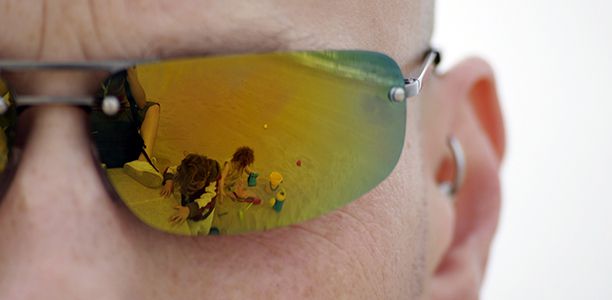New research from La Trobe shows half of Victorian parents worry about their children coming to harm from a stranger when they are not with an adult.
Almost half (48%) of Victorian parents of children aged nine to 15 are worried about their child’s safety when they are not with an adult because a stranger might approach them.
Victorian parents are more fearful about their child being harmed by a stranger, than they are about their child’s general safety when out in their neighbourhood without an adult.
New research by La Trobe University and the Parenting Research Centre funded by VicHealth, is the first of its kind in Australia.
It also reveals that around one third of parents avoid situations where their child goes without an adult, because they are fearful they would be approached by a stranger.
Beyond the bubble-wrap: Understanding parents’ fears in allowing their children to play and travel independently, contains the preliminary findings of a survey of more than 2000 parents.
It examines the role parental fear plays in shaping children’s independence and physical activity.
This was one of several factors that influenced what children were allowed to do on their own with regard to independent play and travel.
Lead researcher, La Trobe’s Professor Jan Nicholson said several factors influence parents’ decisions.
‘There’s issues of ‘stranger danger,’ traffic and pedestrian hazards and we also learnt that
community plays an important role. Children were more likely to be independently active when their parents viewed their neighbourhood as a supportive one, where people know and look out for one another.
‘However, disapproval from other parents, family members, and schools also restricts the level of freedom parents give to their children,’ Professor Nicholson said.
The research also shows that children’s independence is related to their gender and where they live. Parents of girls were more worried about their child’s safety and more fearful of harm to their child from strangers, than parents of boys.
On average, boys are allowed more freedom for independent play and travel than girls and the research shows that 39% of boys travel to school independently compared to 33% of girls. Children in rural and regional Victoria were also more independent than their city counterparts.
VicHealth CEO Jerril Rechter said that children who were able to play and travel without an adult and those who walk or ride to school were more likely to get the recommended one hour of physical exercise every day, which was important given rising obesity levels.
Findings from the next phase of the research will be released next year. These results aim to make it easier for parents to weigh up risks and benefits and help their children move towards appropriate independent play and travel for their age.
(Source: La Trobe University)










